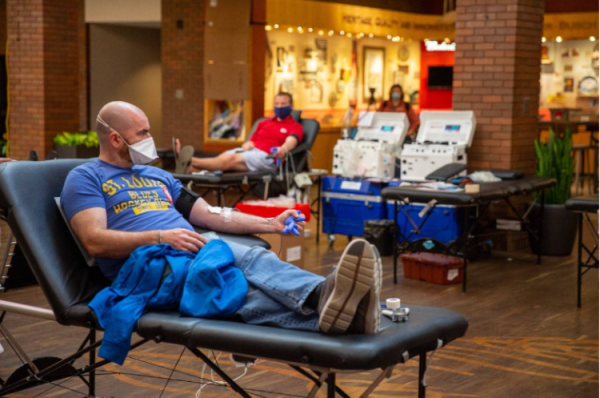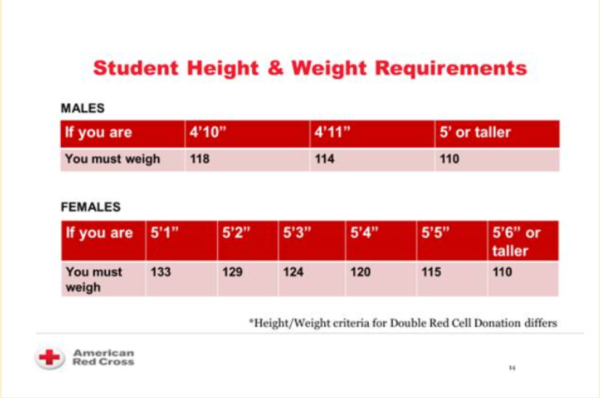 Photo via: American Red Cross
Photo via: American Red Cross
Just like last school year, West’s Student Government Organization is partnering up with the Red Cross to have an in-school blood drive. The goal is to get eligible staff members and students to donate a fraction of their blood to be used in hospitals for patients in need. These blood samples can save the life of someone in an emergency situation, such as traumatic injuries, chronic illnesses, cancer treatment, and surgeries. Different parts of the blood have many different uses, all of which are important in saving the lives of others.
Almost all of the donors needed in this blood drive will be donating whole blood donations. This means that every component of the blood is being donated, not just certain components like plasma or platelets. A few of the donors needed are “power-red” donors, which means that they give just concentrated red blood cells and return the platelets and plasma to the donor. These donations are also very important because isolated red blood cells are the most needed part of blood, as they are the most commonly transfused. Only certain people with bodies better suited for this more demanding donation are eligible to be “power-red” donors.
If you are considering donating blood, there are a few requirements you have to meet.
Photo via: American Red Cross
Pictured above is a table displaying what minimum weight you have to be based on your height in order to donate. These requirements are in place to ensure giving blood is a safe and comfortable experience for the donor. In addition to these height and weight requirements, donors have to be aged 16 and above. If they are 16, a parent or guardian needs to give permission, but that is not necessary with donors 17 years of age and older. All donors should also be in generally good health in general so that donating doesn’t have a huge negative effect on their bodies.
If you meet all the requirements for donation and have filled out all the documents, there are a few things to remember before donating. One of the most important ways to prepare for donating is your diet. Donors need to be eating iron-filled foods, such as red meat, poultry, fish, beans, and broccoli. Stocking up on iron helps your body recover more quickly from the iron it’s losing during donation, as the donated red blood cells contain some of your body’s iron. Coupling iron-filled foods with Vitamin C-rich foods is also beneficial, as Vitamin C allows the iron to be more efficiently absorbed into the body. Make sure to eat 3 good meals a day filled with these foods the few days right before your donation. The night before donating, get at least 8 hours of sleep to ensure that your body is feeling as good as it can. Drinking plenty of fluids also helps your body recover quicker.
Many people wonder why iron is so important when talking about blood donation. Iron is a mineral that the body needs to function and make new red blood cells. Most of your iron is gained from your diet, which is why an iron-based diet when donating is so vital. The Red Cross checks your hemoglobin, which is a protein in red blood cells that contains iron, right before you donate to make sure you have enough to donate and still be healthy. If someone’s hemoglobin is too low, they may get deferred and ask to donate when their iron levels are higher.
After donating, your body still needs to be taken care of as it recovers. Eating foods with proteins or complex carbohydrates like bread and fruit makes the donor feel better if they don’t feel their best after donating. Staying hydrated after you donate is also helpful as it can replace the volume of blood that you donate. Finally, make sure to take it as easy as possible after donating. Since your body is still in recovery, it’s important to give it time to rest and heal from the blood it lost. With the proper rest time after donating, your body will be as good as new in no time!
Donors also receive a $20 gift card this year when they donate. The Blood Drive will be on February 21, 2024. Donors only need to stop by the site for a few hours, so they won’t have to miss the entire school day. Visit Mr. Broadbelt for any forms needed to sign up. If you are eligible to donate or know someone who is, sign up or spread the word. The more donors the better; these donations are always needed to save lives!

